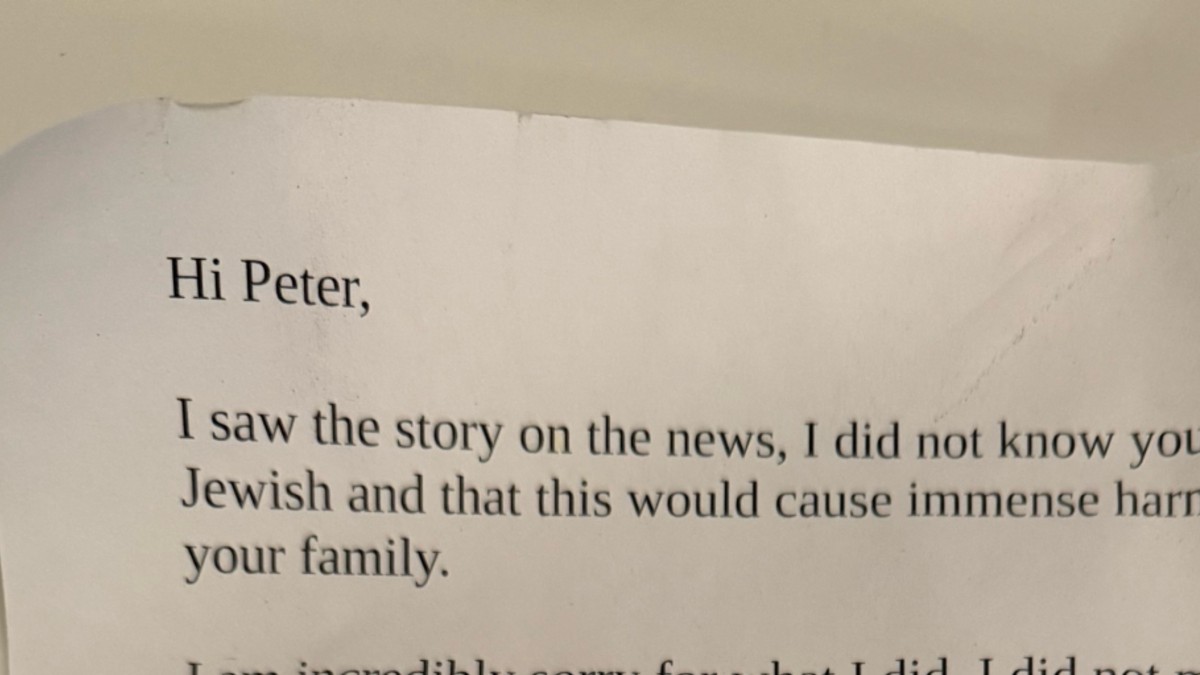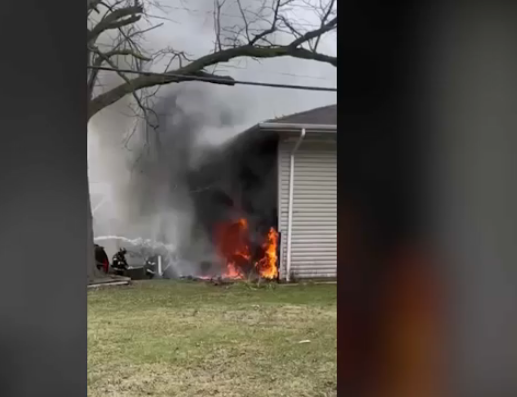More than 400 progressive community members, activists and elected officials gathered in Albany Park Saturday to discuss how a second Trump term will impact Illinois. NBC Chicago’s Jenn Schanz reports.
More than 400 progressive community members, activists and elected officials gathered in Albany Park Saturday to discuss how a second Trump term will impact Illinois and Chicago.
The event, hosted by Northwest Chicago and suburban elected officials in conjunction with more than a dozen local progressive organizations, focused on public policy issues like immigration, reproductive rights, gender justice, and the environment.
The event was held at Roosevelt High School and started in the auditorium before breaking out into several smaller groups organized by policy issue.
Isabel Alter with United Neighbors of the 35th Ward helped facilitate a conversation on reproductive rights. While such rights are protected in Illinois, she's concerned about the ripple effect from states with more restrictive laws on abortion access.
"Are hospitals and providers going to have the support that they need to continue providing that care as we continue to be a hub - probably more and more for reproductive access in the Midwest?" she said.
"This has been really heartening," Josephine Ferorelli told NBC Chicago. "I didn't expect this many people here. I was just in the climate breakout group and we were talking about what do we do... the ward level, what do we do on the city level."
Immigration was also a big topic.
Local
President-elect Donald Trump has doubled down on promises to be tough on border issues, and said his administration would have "no choice" but to carry out large-scale deportations, something echoed by his pick for "border czar," Tom Homan, a former acting ICE director.
So what does this mean for Illinois?
Feeling out of the loop? We'll catch you up on the Chicago news you need to know. Sign up for the weekly Chicago Catch-Up newsletter.
"We want to share what are the current protections and then where are the gaps," said Rep. Lilian Jiménez of Illinois' 4th District.
In a state with so many mixed-status immigrant families, Rep. Jiménez, who is also a licensed immigration attorney, wanted to dispel myths Saturday while also validating people's very real concerns.
"I can't explain to you how much people are afraid right now. They're calling our office and talking to us about can I go to my doctor's appointment," she told NBC 5.
In 2021 Illinois passed a series of legislative measures to limit state government's cooperation with federal ICE officials. Jimenez would like to see those protections expand to the private sphere too.
"Donald Trump cannot send troops into the state of Illinois or Chicago without the request of the governor or the mayor. I don't see Governor Pritzker or Mayor Brandon Johnson requesting federal troops to enforce immigration status around Chicago or all of Illinois," said Aaron Del Mar, co-chair of the Illinois Republican Party.
Del Mar believes moderate Republicans in Illinois will be a buffer to fears of more extreme policies coming from Washington.
And on the issue of reproductive rights in our state, "If anything you're seeing in this veto session happening in the Illinois House even moving it more to the left," he said.
In response to several of the president-elect's cabinet picks this week, Pritzker joined Colorado's governor in forming a coalition to oppose much of the Trump agenda.
Alter is bracing for crackdowns at the federal level on access to abortion medication and that's impact here. While the policies she's most concerned about have yet to be enacted, she said conversations at the local level are critical in helping advocates prepare.
"We can't be on our back foot when these policies are put into place," Alter said.



